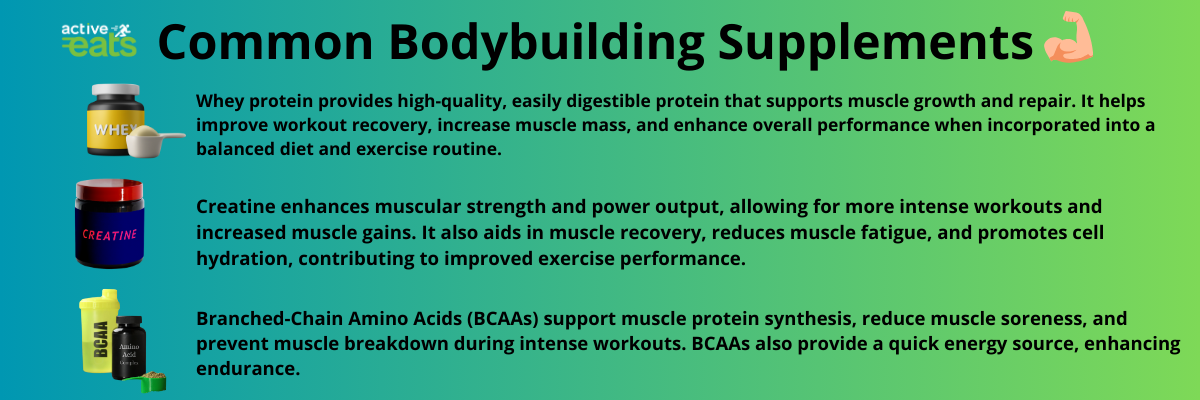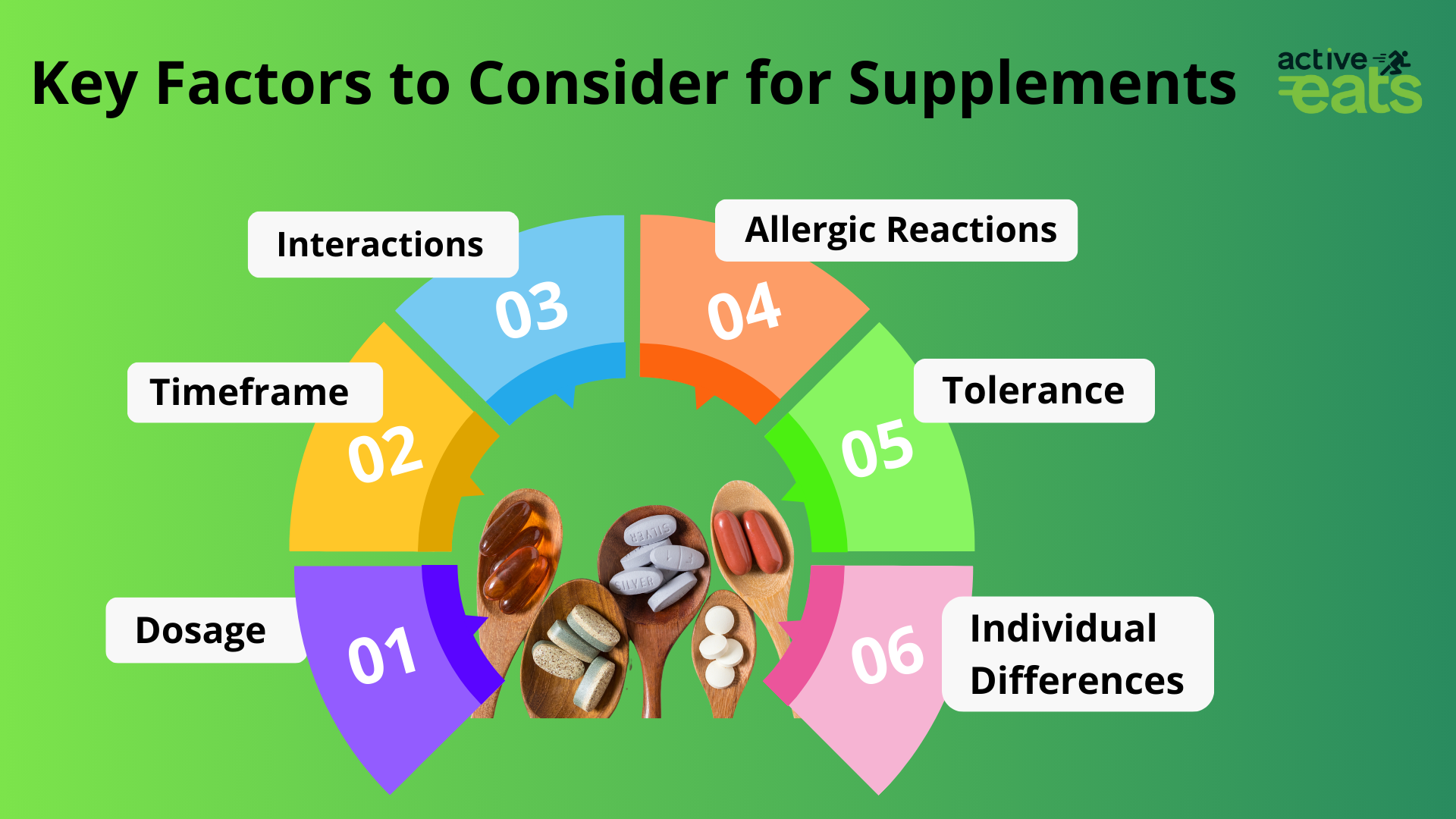Optimizing Wellness: A Deep Dive into the Benefits and Considerations of Health Supplements
Welcome to our blog post on health supplements! In today’s fast-paced world, it can be difficult to get all the vital nutrients your body needs from just regular diet alone. That’s where health supplements come in. Also, known as dietary supplements, it can be used for strong immune system, enhancing athletic performance, or promote overall well-being, there are various types of health supplements available to meet your needs. In this blog post, we will explore the different types of health supplements, their benefits, potential side effects, how your body responds to them, and what to look for when choosing a supplement. So, let’s dive in and discover the wonderful world of health supplements!
Types of Health Supplements
A supplement can provide various nutrients either extracted directly from food or made synthetically to improve nutrient concentrations. There are various types of health supplements available, including vitamins, minerals, fibre, fatty acids, herbal supplements, and protein powders.
Different health supplements serve different purposes, such as boosting immunity, promoting bone health, or enhancing athletic performance.
Body Building Supplements: Bodybuilding supplements are designed to support muscle building, improve performance, and enhance muscle recovery.
Common bodybuilding supplements include:

These supplements can help individuals achieve their fitness goals by providing the necessary nutrients to support muscle growth, increase strength, and aid in post-workout recovery.

Advanced Body Building Supplements: Individuals who engage in rigorous bodybuilding exercise and physical activities including heavier lifting and power training need some advanced body building supplements along with regular bodybuilding supplements that we have discussed above.
- L-Glutamine: Body produces certain amount of L-Glutamine but advanced bodybuilders needs it from external sources too. It is the building block of protein which helps in muscle growth, repair and maintenance. Also, in times when the body’s energy needs are high (such as during intense exercise), glutamine can be converted into glucose to provide energy to cells, especially those in the immune system and the digestive tract.
- Beta-Alanine: When athletes and body builders performs intense workouts, then Beta-Alanine supplement can act as buffer against the build-up of acid (specifically, lactic acid) during intense exercise. This helps delay the onset of muscle fatigue and allows athletes to perform high-intensity activities for longer periods.
- EAA: Essential Amino Acid (EAA) supplements help in muscle building and tissue repair. Also, during calorie deficit diet regime, EAA helps in reducing muscle loss by providing the essential amino acids necessary to maintain muscle protein synthesis
- Phosphatidic Acid: It is known for its ability to increase muscle gain and power output. Bodybuilders take Phosphatidic Acid to enhance muscle protein synthesis (MPS) by which the body builds and repairs muscle tissue
- Arginine: It is an amino acid that improves blood flow due to its role in producing nitric oxide, potentially enhancing muscle pump and endurance.
Understanding the Effects of Health Supplements on Your Body
When you take health supplements, they can have various effects on your body, depending on the specific supplement and dosage.
Here are some key points to consider:
- Enhanced Nutrient Levels: Health supplements can help fill nutritional gaps in your diet by providing additional vitamins, minerals, and other essential nutrients.
- Supporting Body Functions: Certain supplements are targeted towards supporting specific body functions, such as improving immune system function or promoting heart health.
- Potential Adverse Reactions: It is important to use supplements properly and avoid excessive dosages, as some supplements can cause adverse reactions in the body.
- Support for specific health conditions: Some health supplements are specifically formulated to address certain health conditions, such as omega-3 fatty acids for heart health or calcium and vitamin D for bone health.
- Enhance athletic performance: Athletes and fitness enthusiasts often rely on supplements like protein powders, creatine, and BCAAs to support muscle building, improve endurance, and aid in recovery.
It is important to note that the benefits of health supplements can vary depending on individual needs and health goals. Consulting with a healthcare professional or registered dietician can help determine which supplements may be most beneficial for you.
Unveiling the Side Effects of Health Supplements
While health supplements can be beneficial, it is important to be aware of the potential side effects that they can cause. These side effects can occur when supplements are taken in excessive amounts or in combination with certain medications.
Common side effects found in health supplements are:
- Digestive Issues: Some individuals may experience digestive problems such as upset stomach, diarrhea, or constipation when taking certain supplements. This can be due to the ingredients or the dosage of the supplement.
- Allergic Reactions: Allergic reactions to health supplements can range from mild to severe. Common symptoms include itching, rash, swelling, or difficulty breathing. If you experience any of these symptoms, discontinue use immediately and seek medical attention.
- Interactions with Medications: Some supplements may interact with prescription or over-the-counter medications, altering their effectiveness or causing unwanted side effects. It is important to discuss potential interactions with your healthcare provider.
- Adverse Reactions: Certain individuals may have adverse reactions to specific supplements, even when taken as directed. These reactions can vary from person to person and may include headaches, dizziness, or changes in blood pressure.
It is essential to be aware of these potential side effects and to use health supplements responsibly. If you experience any adverse reactions, stop using the supplement and consult with a healthcare professional. They can provide guidance on the best course of action and help you find suitable alternatives if needed.
Here are some key factors to consider:

- Dosage: The response of your body may vary depending on the dosage of the supplement. It is essential to follow the recommended dosage provided by the manufacturer or healthcare professional.
- Timeframe: The time it takes for your body to respond to a supplement can vary. Some supplements may show immediate effects, while others may take weeks or months to produce noticeable changes.
- Interactions: Certain supplements may interact with medications or other supplements, affecting how your body responds. It is crucial to disclose all the medications and supplements you are taking to your healthcare professional.
- Allergic Reactions: Some individuals may experience allergic reactions to certain supplements. If you notice symptoms such as rash, itching, or difficulty breathing, discontinue use and seek medical attention immediately.
- Tolerance: Over time, your body may develop a tolerance to certain supplements. This means that the initial effects may diminish, and you may need to adjust the dosage or switch to a different supplement.
- Individual Differences: Each person’s body is unique, and the same supplement may have different effects on different individuals. Factors such as age, gender, overall health, and lifestyle choices can influence how your body responds to supplements.
By paying attention to your body’s response and seeking professional guidance, you can optimize the benefits and minimize any potential risks associated with health supplements.
Proper Usage of Health Supplements
To maximize the benefits and minimize potential risks, it is important to use health supplements as directed by the manufacturer or healthcare professional.
Here are some guidelines to follow:
- Take the correct dosage: Always follow the recommended dosage instructions provided on the supplement packaging or as advised by your healthcare professional. Taking too little may not provide the desired effects, while taking too much can be harmful.
- Follow recommended guidelines: Some supplements are meant to be taken with food, while others should be taken on an empty stomach. It is important to follow the specific instructions given for each supplement to ensure optimal absorption and efficacy.
- Understand potential interactions: Certain supplements can interact with medications or other supplements, potentially affecting their effectiveness or causing adverse reactions. Consult with your healthcare professional to understand any potential interactions and make informed decisions.
Remember, health supplements are intended to supplement a healthy diet and lifestyle and should not be used as a replacement. Always consult with a healthcare professional before starting any new supplement regimen, especially if you have underlying health conditions or are taking medications.
Key Considerations: What to Look for in Health Supplements
When choosing health supplements, it is important to consider several key factors to ensure their quality and safety:
- Ingredient Quality: Look for supplements that use high-quality ingredients sourced from reputable suppliers. Check for any potential contaminants, fillers, or artificial additives.
- Potency and Dosage: Check the potency and dosage of the supplement to ensure that it aligns with your specific needs and health goals. The label should clearly indicate the amount of active ingredients per serving.
- Safety Certifications: Choose supplements that have undergone rigorous testing for safety and quality. Look for certifications such as Good Manufacturing Practices (GMP), NSF International, or US Pharmacopeia (USP).
- Trusted Manufacturing Processes: Research the manufacturer’s reputation and ensure they follow strict manufacturing processes. Look for companies that prioritize quality control, adhere to regulations, and have a good track record.
- Third-Party Testing: Opt for supplements that have been tested by independent third-party laboratories. This ensures that the product meets the claims made on the label and is free from contaminants.
- Evidence-Based Formulations: Consider supplements that are backed by scientific research and have evidence supporting their effectiveness. Look for peer-reviewed studies or clinical trials that validate their claims.
By carefully considering these key factors, you can make informed decisions when selecting health supplements and ensure their safety and efficacy for your specific needs.
Conclusion
In conclusion, health supplements play a crucial role in supporting overall health and well-being. Whether you are looking to fill nutritional gaps in your diet, enhance athletic performance, or manage specific health conditions, there are various types of health supplements available to meet your needs.
However, it is important to use health supplements responsibly and with caution. Understanding the effects of supplements on your body, following recommended usage guidelines, and consulting with a healthcare professional are essential for safe and effective usage.
Additionally, it is vital to be aware of the potential side effects of health supplements and to choose reputable brands that have undergone testing and carry trusted certifications. Avoiding dangerous and unregulated supplements is crucial for your health and well-being.
Overall, health supplements can be a valuable addition to a healthy lifestyle when used correctly. They can provide the necessary nutrients and support the body’s natural processes. Remember to prioritize your health and make informed choices when it comes to selecting and using health supplements.

